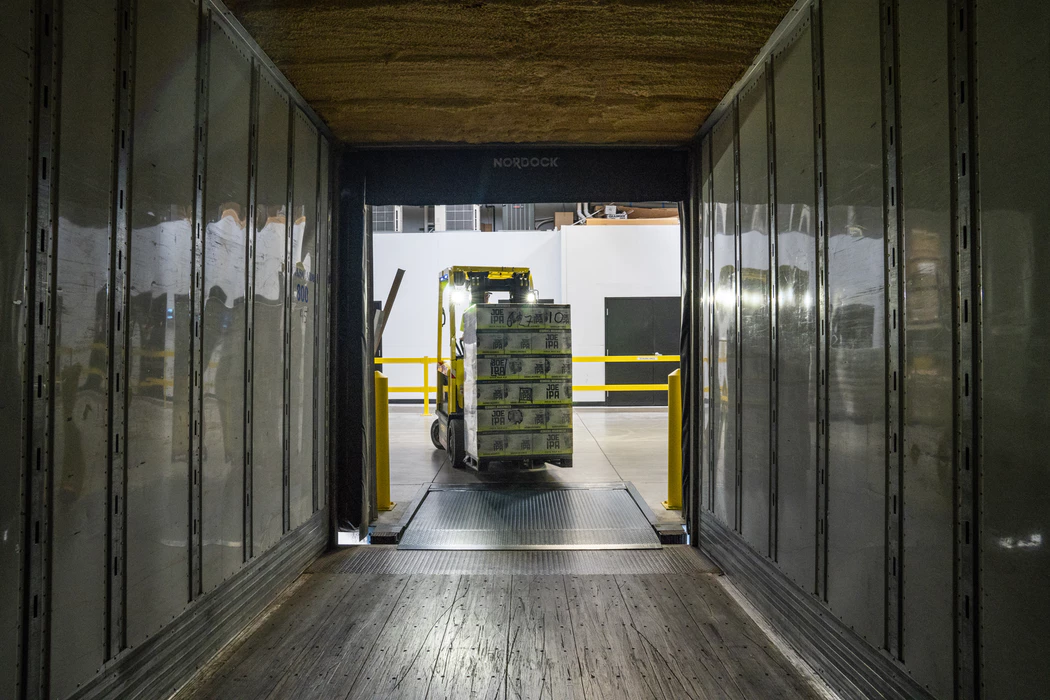
By Bond Collective Staff
If you’re a startup entrepreneur transitioning to a coworking space, your office move may be as simple as packing your laptop and a few personal items into a backpack. But for larger businesses, you’ll need to address a long list of details and arrangements so your office move doesn’t descend into chaos.
In this article, we’ve created a step-by-step guide for the smoothest office move possible.
How To Successfully Plan And Execute An Office Move
1) Start Early
If your office move involves more than one or two people and their equipment, there will be a long list of logistics to organize and coordinate. It’s best to start planning early so you have plenty of time to make sure your office move procedures are firmly in place before the big day arrives.
You can even begin preparing before you’ve secured a new space. For example, you can perform steps five and six (destination map and changes to the new office) at the very end of the process after you’ve done almost everything else.
2) Designate One Place For All Information

Your office move — regardless of size and complexity — is going to generate a great deal of paperwork. You’ll have notes, contracts, to-do lists, inventories, schedules, insurance records, maps, diagrams, and spreadsheets (just to name a few), and it all needs to be easily accessible at a moment’s notice.
We suggest digitizing this information (e.g., scanning or taking a picture of physical documents) and storing it all in the cloud. That way, you can view the details of your move anytime, anywhere.
3) Produce A Timeline For Your Office Move
Before you make any plans, produce a timeline for your office move. You don’t need every single detail at this stage, just the broad strokes.
To ensure that the timeline is as realistic as possible, discuss it with your team members. And give yourself plenty of time to complete the project. A small move can take up to three months to prepare, while a large one can take eight months to a year to organize.
4) Create An Origin Map
During the planning stage, create a diagram of your current office space (i.e., an origin map).
On this map, group team members (or even entire departments) and their furniture and supplies by name, color code, or some other indicator. For example, you might designate your art department as blue, your IT department as red, and your customer service department as yellow.
This becomes useful later on when labeling boxes and transferring said boxes from the moving truck to the proper area in your new office space.
5) Create A Destination Map

If you’ve already secured your new office space, create a diagram (e.g., a destination map) of that working environment.
You can then arrange your existing team members in the new space and identify any potential problems that space may create. It’s best to uncover those issues before starting your office move so the actual transfer of personnel and property proceeds as smoothly as possible.
6) Make Changes To The New Space Before The Move
Make any changes to your new office space before you move in. It’s much easier (and cheaper) for construction, electrical, and IT crews to work in an empty space.
If you install new power outlets, knock out walls, and run networking cable before moving, your team will have an easier time getting settled and back to work.
7) Secure A Moving Company

Hiring a moving company is one of the most critical tasks for a successful office move.
If possible, secure a company that specializes in this type of transport. They will have all the experience, tools, and supplies (not to mention recommendations and helpful procedures) to make your move as painless as possible.
8) Arrange For Supplies
Regardless of the size of your business, you’re going to need boxes, tape, labels, and other supplies. Assemble these supplies early so they’re ready to go when you are. You can even start boxing up non-essential items before the big day to cut down on packing time.
9) Take This Opportunity To Downsize

In the months and days leading up to your office move, review your inventory and identify items you no longer need. Shred old records. Organize an office warehouse sale for filing cabinets, desks, chairs, etc.
This will help reduce the amount of furniture and boxes you’re left with to coordinate and move.
10) Create Labels For Boxes And Spaces In The New Office
Now is the time to put the naming designation you created in steps four and five to work. For example, mark each box with the employee’s name and color code that corresponds to where they’ll work in the new office.
When you have access to that space, label each area with the appropriate color code so that the movers know where to put each box.
11) Coordinate Origin And Destination With An Item Spreadsheet

Keeping track of all the boxes and furniture involved in an office move can be a logistical nightmare. We suggest creating a spreadsheet beforehand so you know what you’ve got and where it goes.
Your spreadsheet should include information such as:
Date item moved
Type of object (e.g., box, table, chair, etc.)
Color
Name of employee to whom the object belongs
Origin building and floor
Destination building and floor
Team name
Manager
Notes
During and after the move, you can refer to this list to ensure that nothing gets lost in transit.
12) Meet With Your Team About The Office Move
Your team members will have questions. Meet with them before the big day to provide essential information, including:
Parking
Access credentials
Features of the new space
Routine changes
Layout of new office
That way, your team members will feel comfortable making the move from one office to another.
13) Clean Both Spaces
Before your office move, arrange for a professional cleaning company to thoroughly scrub the new space. If you’ve made any modifications to the office, there will be dust and debris. It is much easier to clean up any messes before you start moving large furniture and boxes in than after.
It’s also important to clean your old office space after everything is out. Many leasing companies will charge you extra for this service, and the price is usually quite a bit more than you would spend if you hired a third party.
14) Unpack
Before you start tearing open boxes in a rush to unpack, consider conducting this part of the office move as the opposite of the organized method you used to pack it all up.
You already have the records and processes in place from the packing stage, so simply run them in reverse for an organized, stress-free (or at least less-stressful) conclusion to your office move.
15) Celebrate

Once you’re all unpacked and settled in, take some time to celebrate your smooth and successful transition. Then get back to work.
Make Your Office Move Easy With Bond Collective

With Bond Collective, your office move is easier than ever.
If your team is already working in one of our beautiful coworking spaces and needs to expand to dedicated desks or even a private office, it’s only a matter of packing your laptop and personal items and walking the few steps to your new work environment.
If you’re moving from an outside location to one of Bond Collective’s six convenient locations, the process is much the same. All your team needs are their laptops and personal items. We provide the furniture and amenities.
Your office move can be as easy as plugging in your computers and getting to work.

No lengthy planning. No complicated packing. Just a seamless and simple move.
It doesn’t matter whether you’re relocating one person or 100 people within a Bond Collective space or across the country, we’ll make the transition as painless as possible.
Our specially curated workspaces combine the best of modern decor with the professional appearance and ambiance that every business needs. You’ll also enjoy industry-leading amenities, including:
24-hour access
Custom build-outs
Conference rooms
Curated events
Insanely fast WiFi
Black-and-white printing
Networking events
Mail service
Complimentary beer, coffee, tea, and fresh fruit
Daily on-site cleaning
Mothers’ rooms
Rooftop lounge
Bike storage
Photo and sound studio (Gowanus)
Complimentary spa water
Guest reception and greeting
Private meeting and phone booths
Office showers

When you partner with Bond Collective, you can avoid the headache and stress of an office move and focus instead on keeping your team engaged and performing at 100 percent.
For more resources to help you manage your business or to learn more about the advantages of coworking spaces for digital nomads, remote workers, and businesses of all kinds, visit BondCollective.com today.